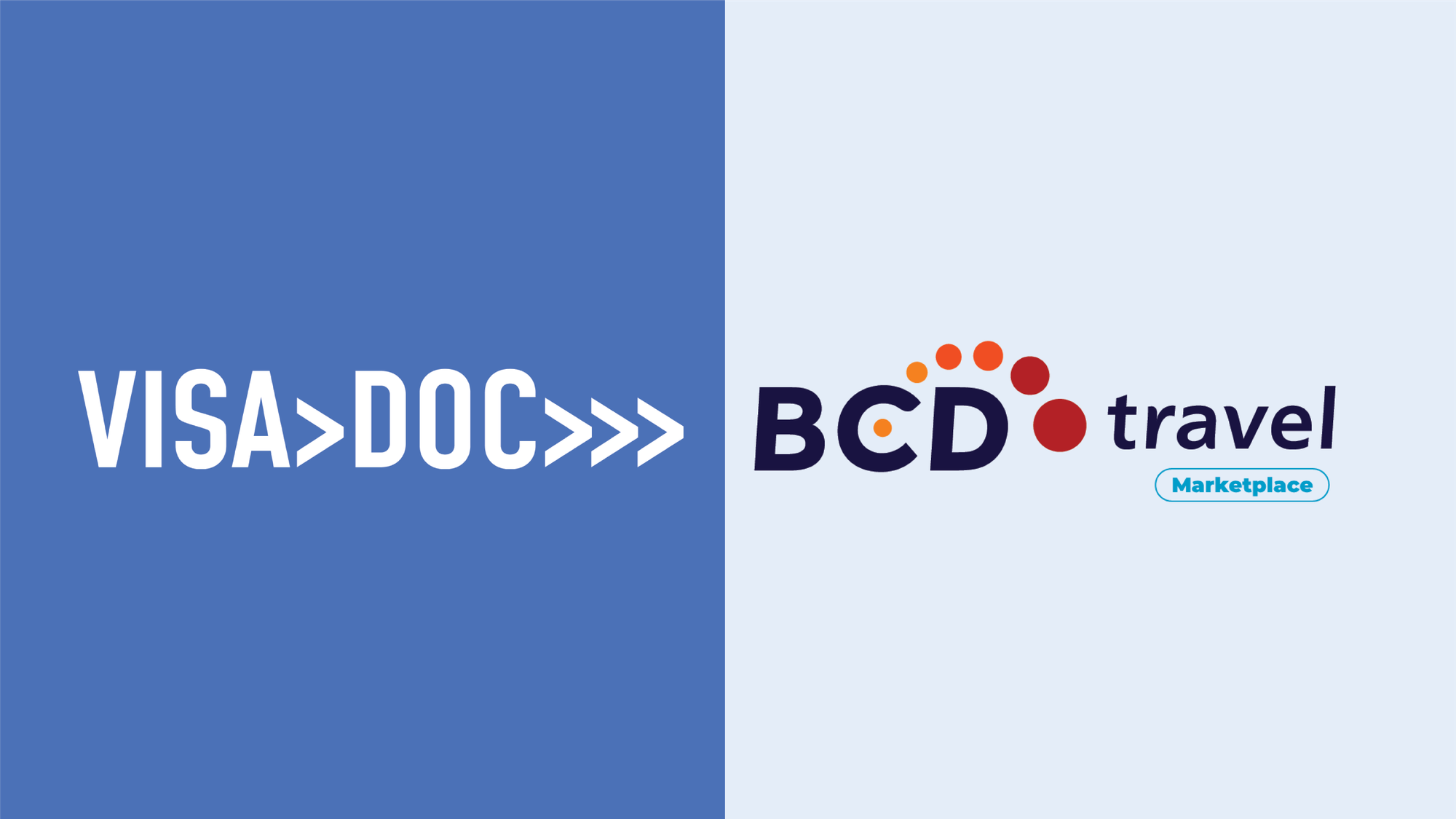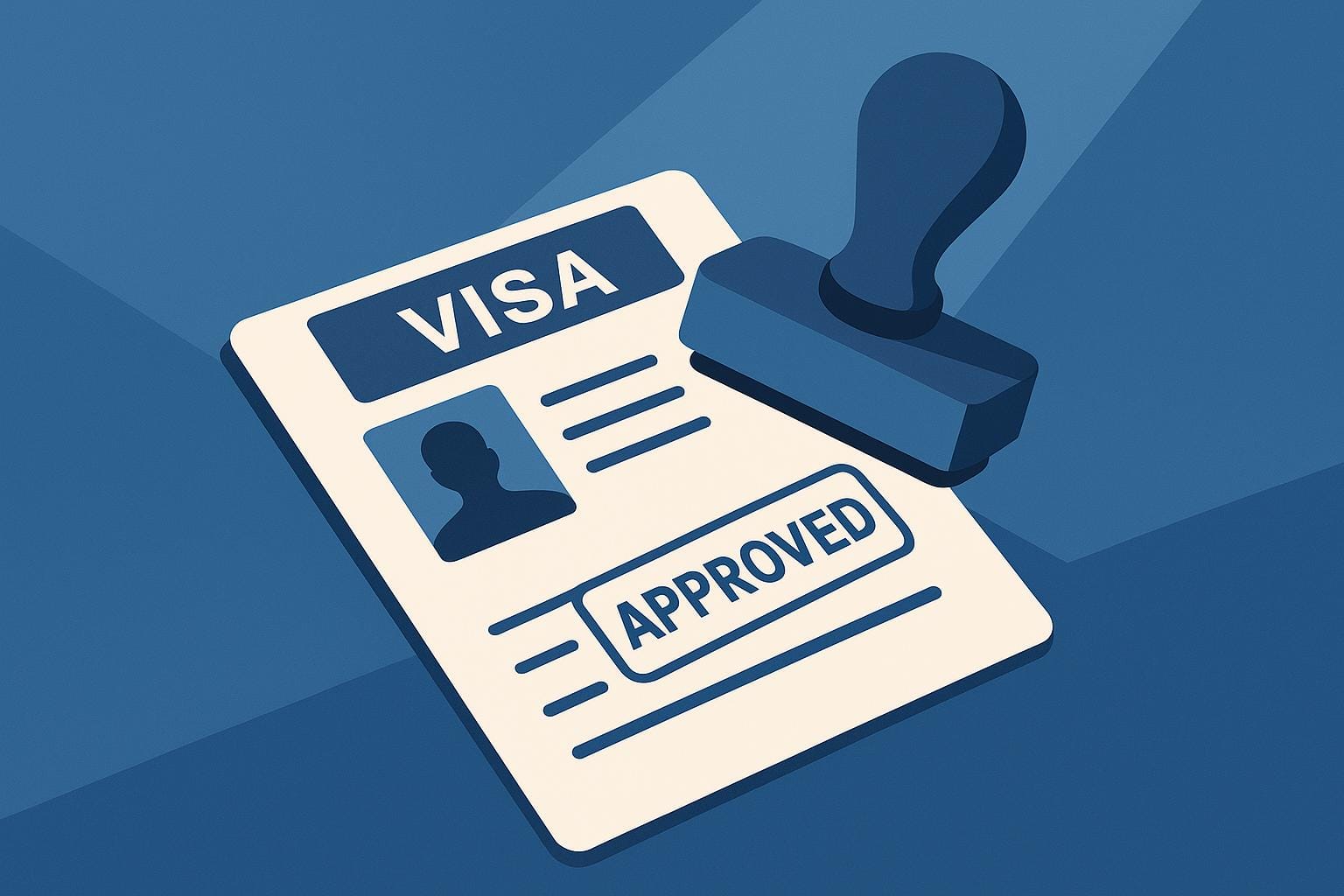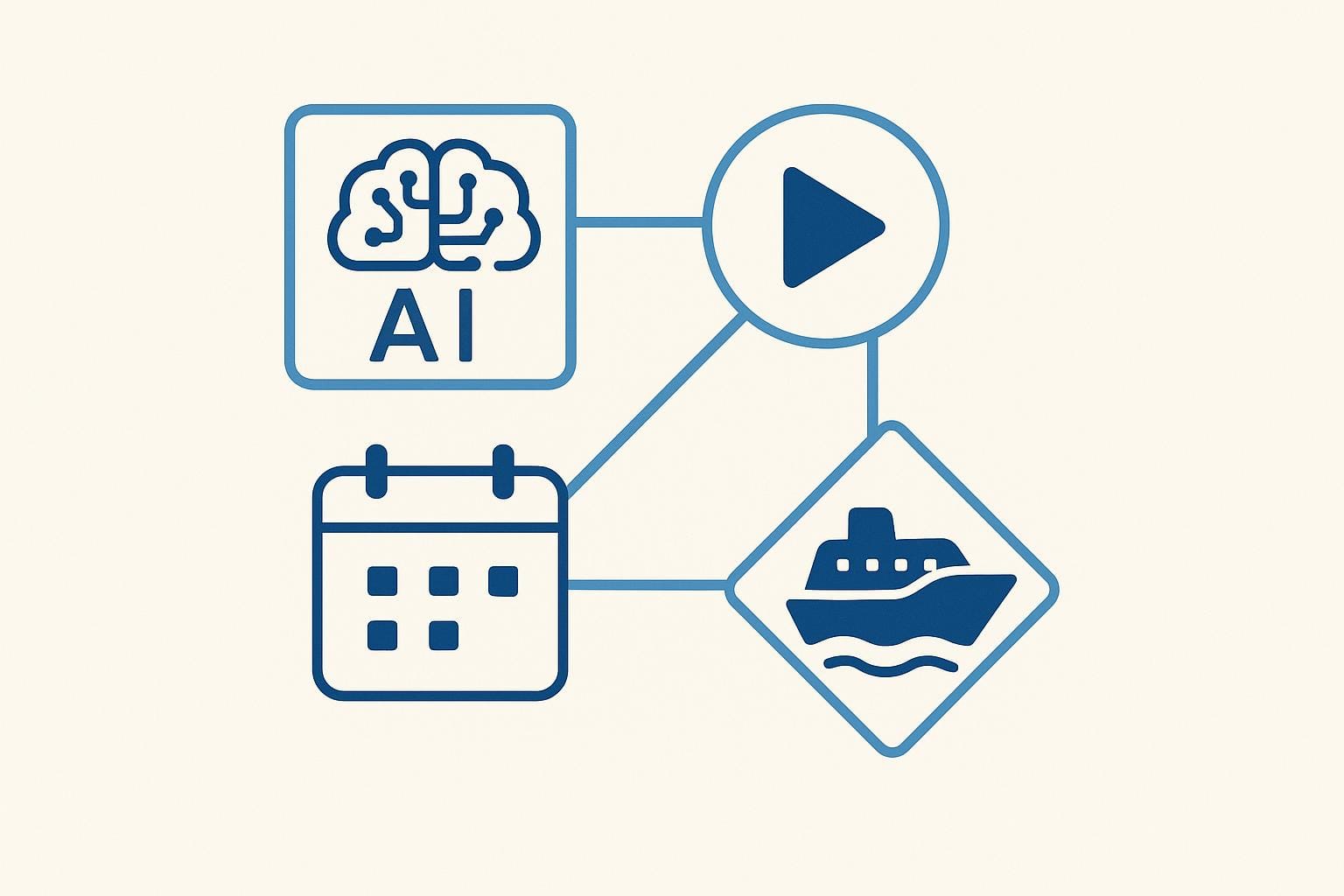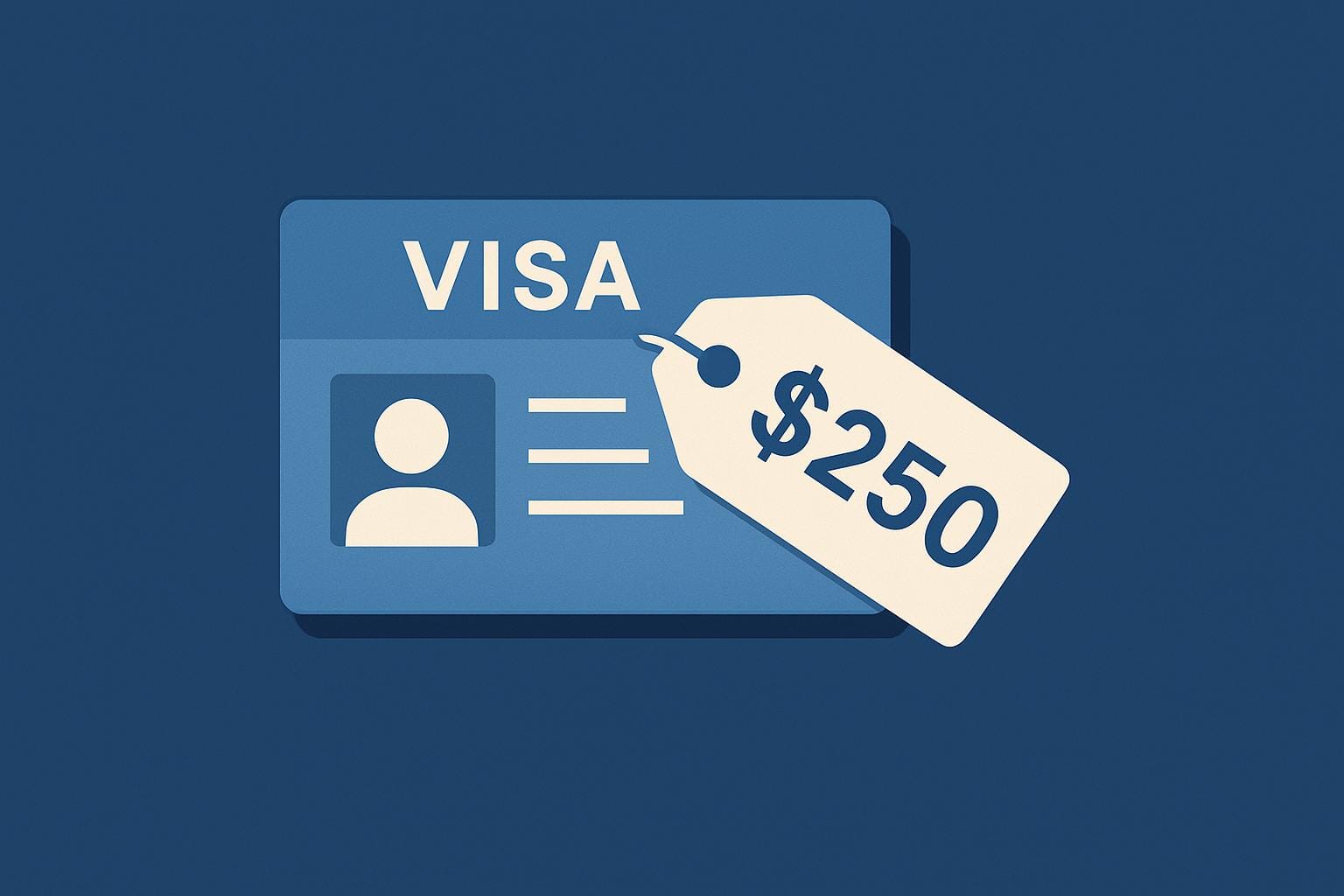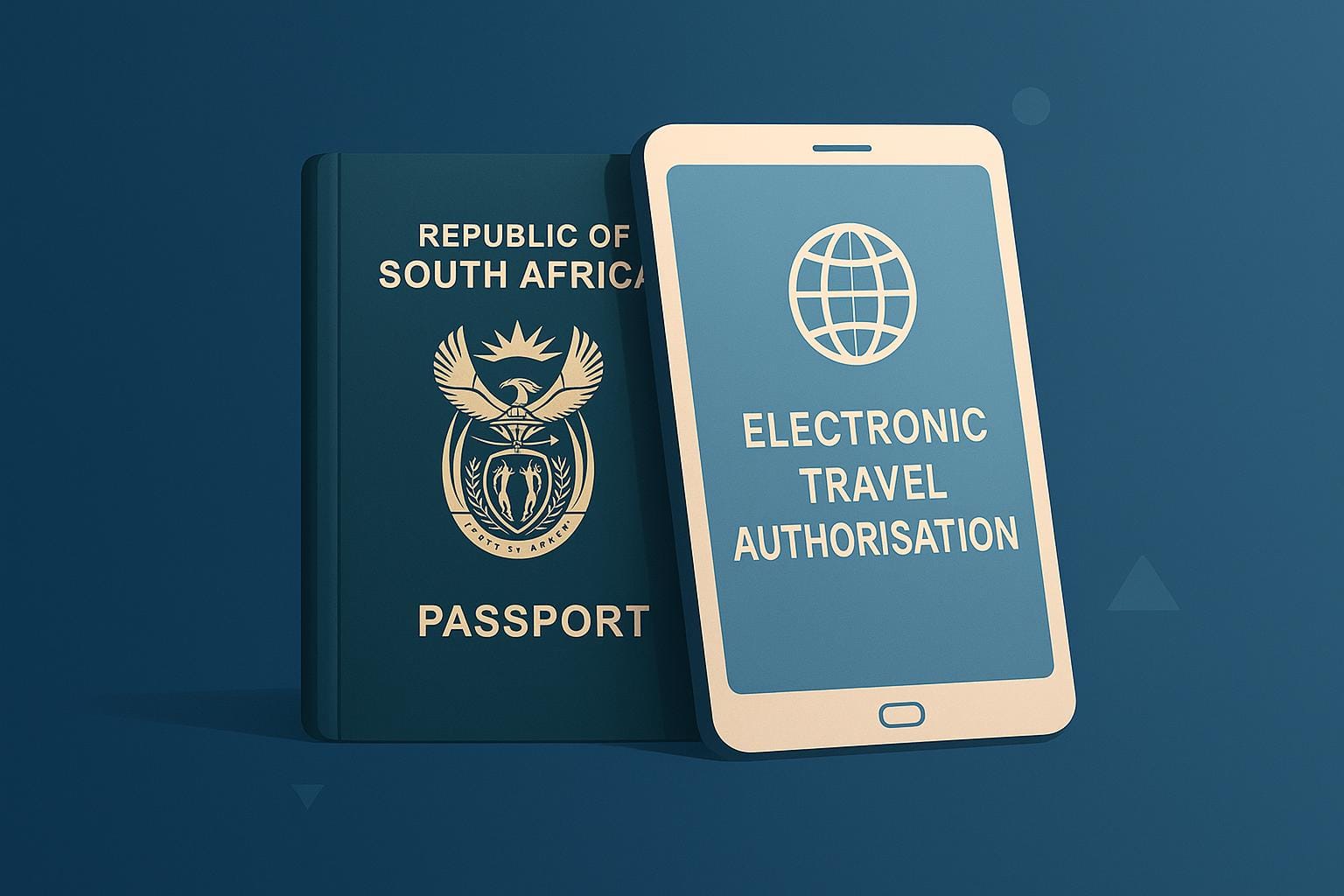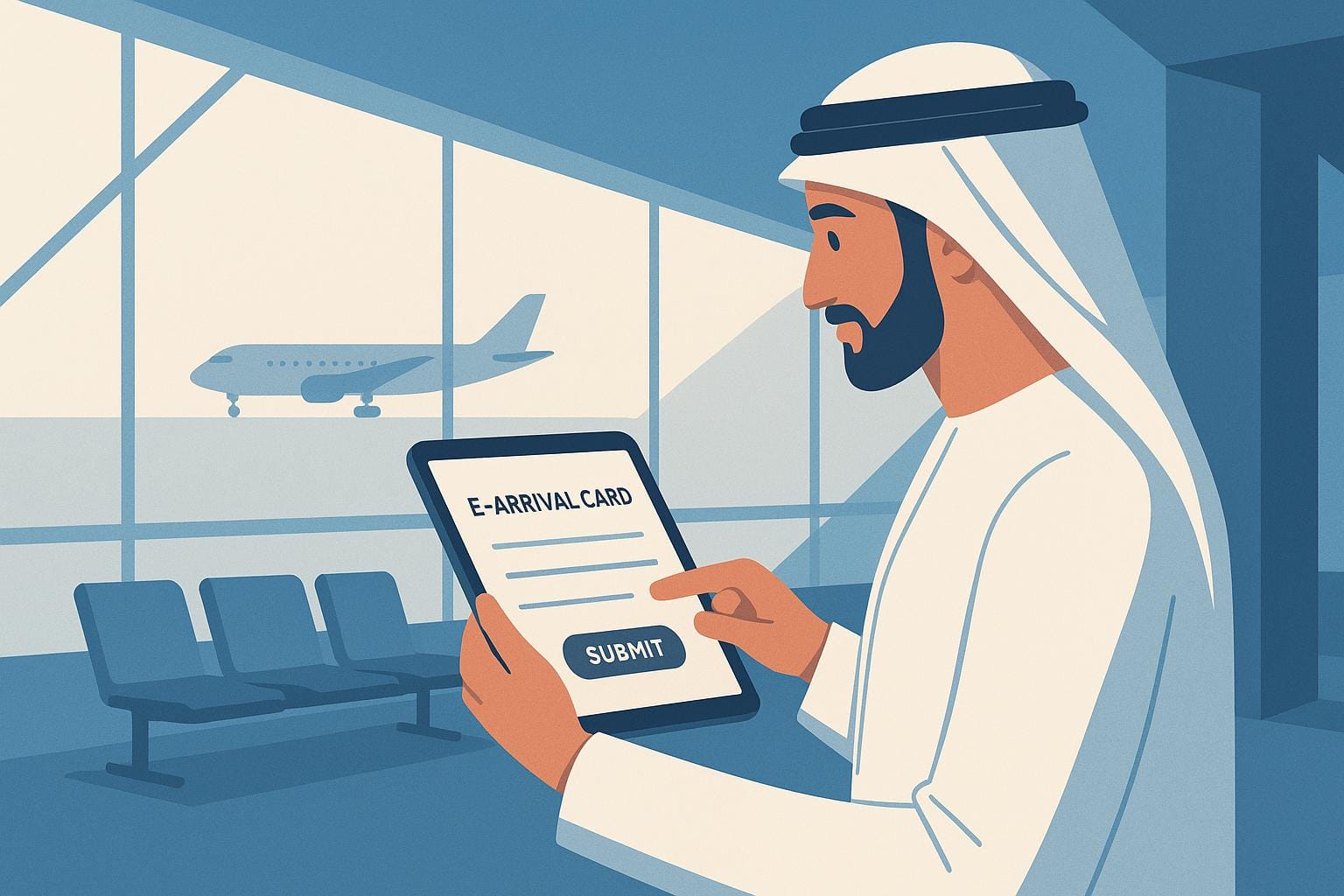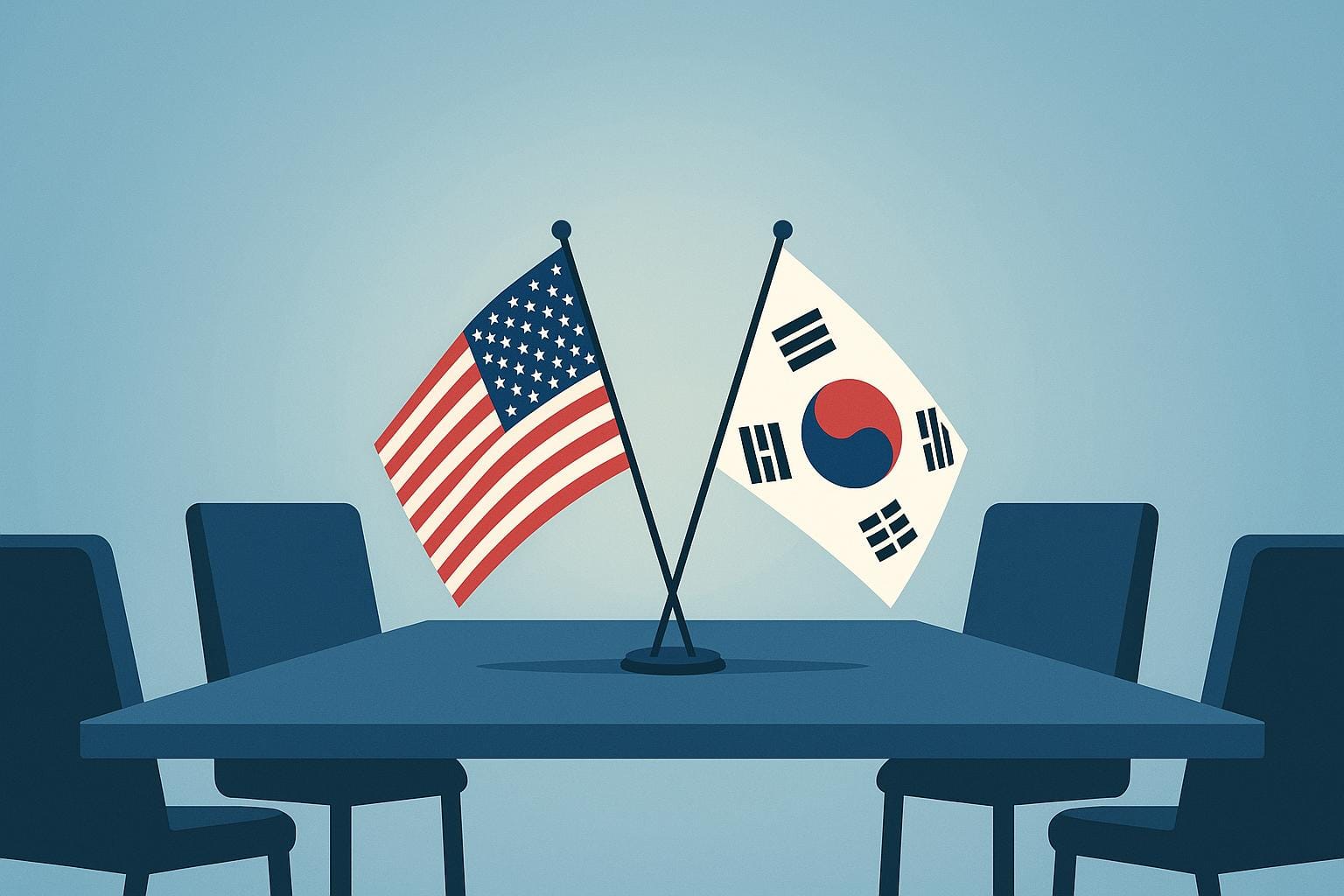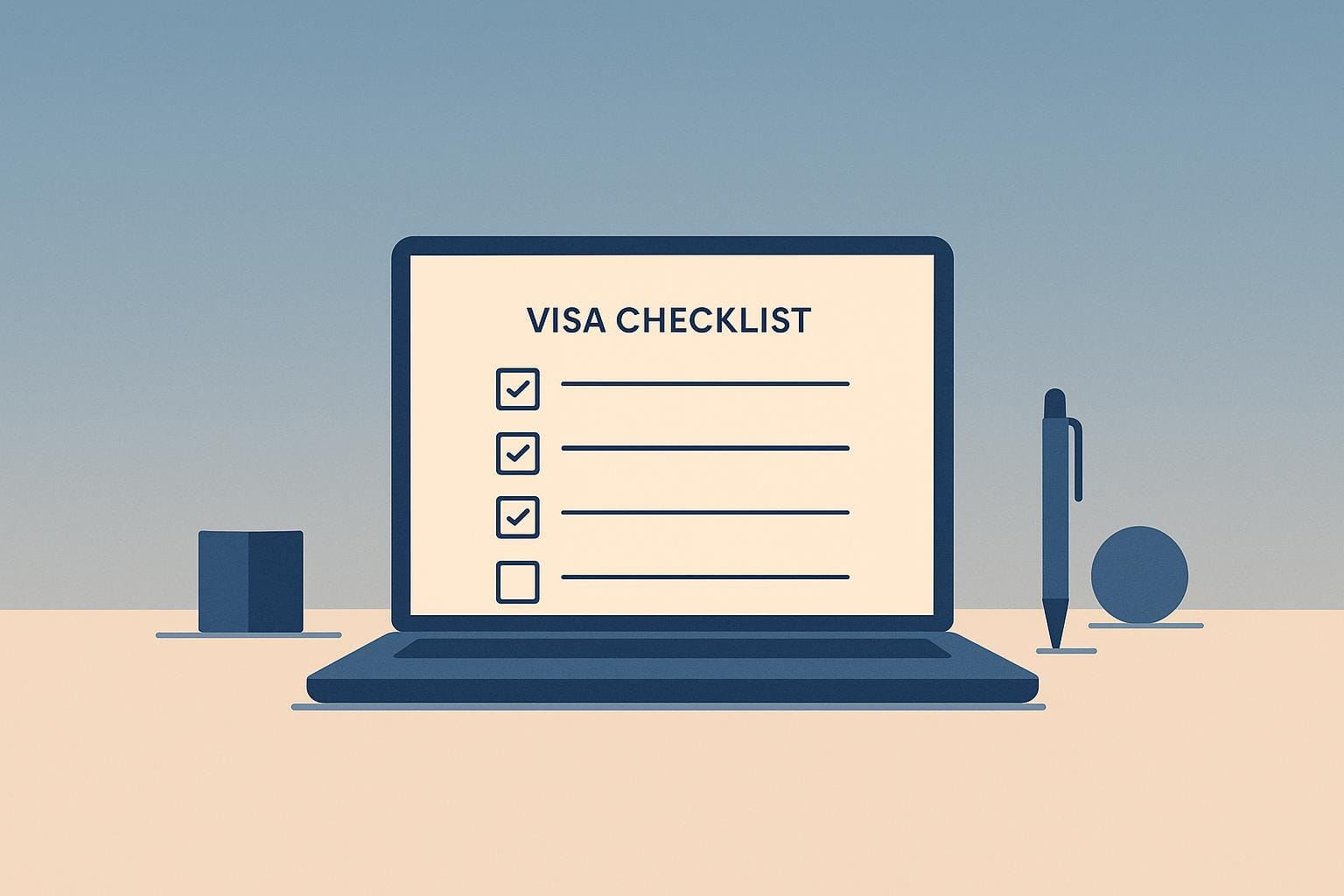Need a business meeting visa for Oman’s energy sector? Here’s what you need to know:
Oman’s energy market is booming, thanks to its Vision 2040 plan focusing on renewable energy and green hydrogen. But if you’re planning corporate negotiations in Oman, visa compliance is non-negotiable. Missing key steps could lead to delays, fines, or worse.
Key Points:
- Documents Required: Passport (valid for 6+ months), visa form, photos, financial proof, return tickets, and an Omani sponsor's formal invitation.
- Processing Time: Standard visas take 3–5 business days, but energy sector applications may need 5–15 days. Apply 15–30 days before travel.
- Visa Types: Single, double, and multiple-entry options exist. Overstaying costs OMR 20/day.
- Sponsor Role: Your Omani sponsor handles the submission and ensures compliance with local laws.
To simplify the process, tools like VisaDoc offer automated solutions for document verification, tracking, and compliance updates. Pair automation with strong internal coordination (HR, legal, and travel teams) to avoid disruptions.
Bottom Line: Proper planning and accurate documentation are key to ensuring smooth business travel to Oman.
Required Documents for Oman Business Meeting Visa
Core Documents for Visa Application
To apply for an Oman business meeting visa, you'll need to gather a few essential documents. These include:
- A valid passport with at least six months' validity from your planned arrival date.
- A completed visa application form.
- Two passport-sized photographs with a clear facial image on a white background.
Additionally, you might be asked to provide a bank statement to show financial capability, as well as proof of accommodation and confirmed return flight tickets to establish the temporary nature of your visit.
Extra Requirements for Energy Sector Meetings
If your trip involves the energy sector, there are additional requirements. You'll need a formal invitation from an Omani sponsor. This document should clearly outline the purpose of the business meeting, key participants involved, as well as the meeting's duration and locations.
Visa Processing Timeline and Compliance Steps
Application Timeline and Processing Duration
Typically, obtaining an Oman business meeting visa takes 3–5 business days from the time of submission. However, for professionals in the energy sector, it's wise to plan ahead. High application volumes or limited staffing can stretch processing times to anywhere between 5–15 working days, depending on individual circumstances. To avoid delays, HR teams should aim to submit applications 15–30 days before the intended travel date. Submitting complete and authentic documentation can help speed up the process. Once the application is ready, your Omani sponsor will handle the submission.
Omani Sponsor Responsibilities
Your Omani sponsor or business partner plays a central role in the visa process. They are responsible for submitting the visa application directly to the Royal Oman Police (ROP) on behalf of the applicant. Sponsors must ensure all local regulations are followed by providing accurate details about the business meetings, such as participant names, meeting locations, and the duration of the visit. They also need to stay in touch with the ROP to address any additional requirements or updates regarding the application. Understanding the specific visa type and its validity is crucial for finalising travel plans.
Visa Types and Validity Periods
Oman offers three types of business meeting visas: single entry, double entry, and multiple entry, each catering to different travel needs. Generally, all these visas must be used within 3 months of issuance. Upon entering Oman, the visa allows for a stay of up to 90 days from the arrival date. For extended corporate engagements, it is possible to apply for a visa extension of up to 1 year, provided the necessary approvals are obtained. Be aware that overstaying your visa without an approved extension incurs a fine of OMR 20 per day. Double and multiple entry visas come with varying fees and conditions.
| Visa Type | Allowed Stay | Visa Validity Period | Fee |
|---|---|---|---|
| Single Entry | 90 days from entry | Must be used within 3 months | OMR 7,500 |
Effective Visa Management Methods
Centralised Document Management and Automation
Handling visa applications for energy sector professionals demands a streamlined approach to document organisation and compliance tracking. Relying on manual processes can lead to delays and increase the risk of compliance failures.
VisaDoc offers a centralised platform that simplifies these challenges by automating key tasks like document verification, updating visa requirements, generating necessary forms, and sending timely notifications.
Thanks to its AI-powered verification, errors are flagged before submission, significantly reducing the chance of rejections that could disrupt critical energy sector projects. The platform also provides automated application fulfilment and real-time tracking, enabling teams to monitor progress and address issues as they arise.
For companies juggling numerous visa applications at once, VisaDoc's API integration connects seamlessly with existing HR and travel booking systems. This eliminates duplicate data entry and ensures consistent, accurate information across all platforms.
That said, technology alone isn't enough. Effective internal coordination plays an equally important role in ensuring a smooth visa application process.
Internal Team Coordination
While automation can streamline processes, clear communication and coordination between internal teams are essential. Managing visas for energy sector professionals often requires collaboration between HR, legal, and travel teams. Without proper communication, even the most prepared applications can face unnecessary delays or compliance setbacks.
"What I've found particularly effective to combat these challenges is really partnering with my clients to understand how their mobility process works generally, not just the visa and immigration component. This enables me to process map how a company bids for work and mobilizes personnel to meet the projects, and the interplay with the immigration/mobility team to ensure there is proper communication and a keen understanding of each group's role in the mobility process. This results in both quantitative and qualitative process improvements, saving both time and money." - Shawn Orme, Fragomen, Del Rey, Bernsen & Loewy, LLP
Clearly defined roles are key to avoiding confusion and ensuring accountability. For example, HR teams can focus on gathering initial documentation, legal teams can review compliance requirements, and travel teams can coordinate submission timelines with Omani sponsors.
Given the unique challenges of the energy sector, immigration needs to be treated as a strategic business priority. Implementing centralised global mobility programmes can bring consistency and compliance to visa processes. Kelly Cobb from Fragomen highlights this approach:
"Companies are now realising the benefits of establishing centralised global mobility programmes to ensure compliance and consistency. We partner with clients to establish such programmes that best fit their needs and continue to develop the programme as the industry and their needs change."
In addition to teamwork, staying informed about regulatory changes is vital for maintaining compliance.
Staying Current with Visa Regulations
Beyond automation and internal coordination, keeping up with regulatory updates is a critical aspect of visa management. Oman frequently updates its visa regulations, which can have a major impact on travel plans for energy sector professionals. For instance, in March 2025, Oman introduced significant changes to its immigration and labour laws, building on reforms from 2023. These changes aim to enhance labour mobility while prioritising local employment, requiring businesses to adapt quickly to remain compliant.
HR teams must actively monitor these updates and adjust visa applications accordingly. Complex regulatory changes often require expert legal advice to navigate effectively.
"Stay Updated on Legal Developments: Regularly monitor policy updates and seek expert legal consultation to ensure compliance." - Fragomen, Del Rey, Bernsen & Loewy LLP
VisaDoc helps by automatically updating visa requirements and notifying users of regulatory changes, reducing the need for manual monitoring.
For energy companies operating across multiple jurisdictions, understanding how interconnected regulations evolve is even more critical. Oman's new E-Visa Programme and changes to work visa requirements illustrate how quickly policies can shift.
To mitigate risks, companies should implement rigorous auditing processes to verify work authorisations and address potential compliance issues proactively. Regular reviews ensure that visa management practices align with current laws and best practices, safeguarding operations from unexpected disruptions.
Visa Management Tools for HR Teams
Streamlining internal coordination is just the beginning. Advanced visa management tools bring automation full circle, making complex processes smoother and more efficient.
Using VisaDoc for Visa Processing

VisaDoc simplifies the process of applying for Oman business meeting visas, especially for energy professionals, by automating documentation, ensuring compliance, and providing real-time guidance.
Its AI-powered document verification system is a game-changer. It flags potential errors before submission, cutting down on the risk of rejections that could derail critical negotiations. Beyond that, VisaDoc automates application fulfilment - generating forms, organising supporting documents, and offering step-by-step instructions tailored to Oman’s visa requirements. Plus, it automatically updates visa criteria to reflect the latest regulatory changes, so you’re always working with the most current information.
For businesses juggling multiple visa applications, VisaDoc’s centralised dashboard is indispensable. It provides real-time tracking, notifies you of deadlines, and sends compliance alerts. This level of visibility is especially valuable when coordinating complex negotiations where timing is everything.
The platform also offers flexibility. HR teams can choose between self-service guides or full compliance support, depending on their resources and workload.
Connecting with HR and Travel Systems
For multinational operations, integration is key. VisaDoc’s API connects seamlessly with existing HR and travel booking systems, reducing repetitive data entry and ensuring information consistency.
Employee data flows directly from HR systems into visa applications, minimising manual errors. Similarly, travel booking systems can trigger visa applications automatically based on meeting dates, streamlining the entire process.
"The wide usage of digital technology in the visa and immigration industry will greatly drive the efficiency and quality of the work... Our company is developing relevant technology to aid and empower our work capability, increase efficiency, and make our service more friendly and convenient to the customers. The automation of the visa form completion, once fully implemented, will enhance our productivity tremendously." - Carsten Ostberg
This integration doesn’t just benefit HR. Finance teams gain direct access to visa-related expenses for budgeting, while travel departments get real-time updates on visa approvals, helping them finalise bookings efficiently. For companies operating across different regions, integrated systems provide a centralised view of global visa requirements and processing schedules, reducing manual errors and ensuring compliance with ever-changing regulations.
Manual vs Automated Visa Management
The difference between manual and automated visa management is stark, particularly in the energy sector, where compliance missteps can lead to costly consequences. Here’s a comparison:
| Aspect | Manual Process | Automated Process (VisaDoc) |
|---|---|---|
| Document Collection | Relies on email chains and physical filing | Uses AI tools for streamlined, centralised document handling |
| Compliance Monitoring | Requires constant manual updates | Automatically tracks and updates regulatory changes |
| Error Detection | Prone to human errors | Flags potential issues early through automated verification |
| Processing Efficiency | Slow and labour-intensive | Faster, with streamlined workflows |
| Cost Efficiency | Higher costs due to staff time and rework | Cuts costs by reducing manual effort and overhead |
| Rejection Risk | Higher risk due to documentation errors | Minimised risk with accurate, timely verification |
Research indicates that up to 20% of travel budgets are wasted on inefficiencies. Automated visa management significantly reduces these losses by cutting down on errors and streamlining documentation.
Manual systems often lag behind regulatory changes, creating compliance risks. Automated solutions, on the other hand, adapt instantly to new requirements, ensuring ongoing compliance.
"All travel policies should contain something on the duty of care, and visas are very related to this... Employees can get detained for not having a visa or not having the proper visa. We have seen and lived this. Deportation is the next step and reputational damage to the company is the net result." - Carsten Ostberg
While transitioning to an automated system requires planning, the benefits are undeniable. Many organisations report measurable improvements in efficiency and compliance, making the shift well worth the effort.
Conclusion: Smooth Visa Processing for Energy Sector Professionals
Ensuring seamless visa processing for professionals in Oman’s energy sector hinges on a well-rounded strategy that prioritises accuracy and efficiency. By addressing documentation requirements, managing timelines, and adopting effective strategies, companies can avoid unnecessary disruptions.
Securing Oman business meeting visas requires meticulous attention to documentation and strict adherence to compliance protocols. Delays or rejections in this process can jeopardise important meetings and strain valuable business relationships.
Timing is a key factor in visa applications for the energy sector. With regulations frequently changing, HR teams must stay informed of government updates, work closely with immigration specialists, and maintain well-organised records to avoid last-minute issues.
The stakes are high when visas are poorly managed. Missteps can amplify operational risks, with recent data showing that 39% of business data breaches result from inadequate compliance measures. Furthermore, the Federal Trade Commission has reported a 25% rise in fines for non-compliance over the past five years. For companies operating in highly regulated industries, such failures can significantly undermine their operations.
As discussed earlier, automation plays a pivotal role in modernising visa processing. By enabling real-time document verification, minimising errors, and integrating seamlessly with HR systems, automated solutions offer a clear edge over manual methods. When combined with coordinated efforts across HR, legal, and project teams, these tools not only speed up the process but also strengthen international business dealings. This efficiency is especially critical for navigating Oman’s dynamic energy market.
For HR departments handling multiple visa applications across diverse energy projects, embracing automated systems can improve accuracy, save time, and provide the transparency needed to manage complex international negotiations effectively.
FAQs
What does an Omani sponsor do during the business meeting visa process for the energy sector?
An Omani sponsor is central to the business meeting visa process, especially for professionals in the energy sector. They serve as a guarantor for the visiting foreigner, ensuring all visa-related requirements and legal responsibilities are fulfilled. This includes handling essential documentation, securing government approvals, and adhering to local laws.
Beyond this, sponsors often coordinate with relevant authorities and may even assist with logistical arrangements, simplifying the entire visa application process. Their role is pivotal in ensuring that energy sector professionals can navigate the process smoothly and focus on their corporate negotiations in Oman.
How can companies stay compliant with Oman's changing visa rules for energy sector professionals?
To keep up with Oman's changing visa regulations for professionals in the energy sector, it's essential for companies to stay on top of updates from Omani immigration authorities. Regularly reviewing these updates and aligning with the latest legal requirements is crucial. Partnering with local legal experts or consultants who understand Omani immigration laws can offer helpful insights and guidance when navigating new policies.
Another important step is setting up an efficient visa management system. This involves keeping documentation accurate and up to date, simplifying application procedures, and providing regular training for HR teams and travel managers. These measures can help reduce delays and make the process of attending key corporate meetings in Oman much smoother.
What are the benefits of using automated tools like VisaDoc to manage visa applications in the energy sector?
Using automated tools such as VisaDoc to handle visa applications can be a game-changer for energy sector companies. These tools take the hassle out of the process by simplifying applications, cutting down on manual work, and offering real-time updates on visa statuses. The result? Less time wasted and fewer chances of delays.
Automation also brings precision and compliance into the mix. By cross-checking documents against regulatory requirements, these tools help avoid common mistakes. With less time spent on admin, companies can shift their attention to more pressing matters - like gearing up for crucial negotiations - boosting overall efficiency in the process.
Related Blog Posts
- India Business Travel Guide: Visas, Permits, and Cultural Tips for Success
- UAE Business Meeting Visa Express: 14-Day Entry Options for Executive Delegations
- Saudi Arabian Temporary Business Visa for Oil & Gas Sector Meetings: Sector-Specific Requirements
- Kenya's Business Meeting Visa for East African Community Corporate Partnerships




